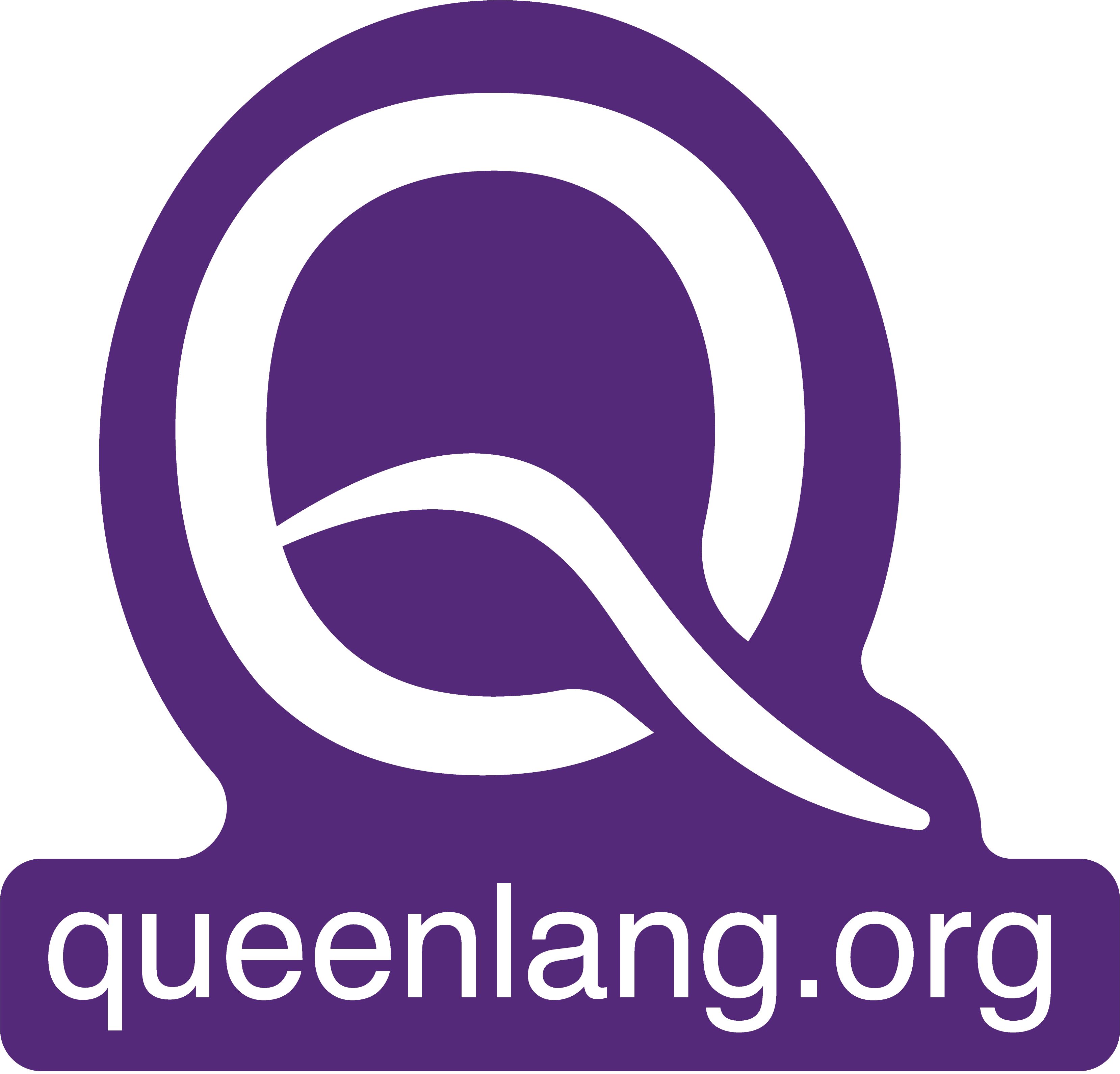Queen-to-Java Transpiler (Queen made out of Java), version 0.0.1.
Given that Queen is so similar in syntax to Java, a transpiler made the most sense for an MVP. Future versions will most likely be directly compiled into JVM bytecode.
Download the latest version of queen-of-java-x.y.z.jar from here (download the latest from Assets).
Rename it to queenc.jar, just for easier usage. queenc itself is written in Java 11, therefore you need to have at least Java 11 installed, in order to use it.
To print help:
$ java -jar queenc.jar -h
usage: queenc
-cp,--classpath <arg> Classpath(s) to look for user-defined classes.
Defaults to current dir.
-f,--files <arg> Queen files to transpile.
-h,--help Print help message.
-o,--output <arg> Output path. Defaults to current dir.
-v,--version Print the version of queenc.Don't forget, you can write an alias for java -jar queenc.jar to shorten it to something like queenc -h.
Put the following code into EntryPoint.queen:
package org.queenlang.helloworld;
/**
* Entry point of our Queen application.
* @author amihaiemil (amihaiemil@gmail.com)
* @version $Id$
* @since 0.0.1
*/
public final implementation EntryPoint {
public static void main(String[] args) {
System.out.println("Queen says Hello World!");
}
}And execute it like this:
$ java -jar queenc.jar -f EntryPoint.queen && java ./org/queenlang/helloworld/EntryPoint.java
$ Queen says Hello World!The first command transpiles the Queen file into a Java file, while the second command simply executes it.
queenc translates your Queen code into Java. The generated Java code will always be syntactically correct. It will also resolve the imports declared in a file, perform semantic validation and symbol resolution, so any transpilation should ultimately result in Java code which is both syntactically and semantically correct. The syntax of Queen starts from Java 8, therefore the generated Java code will always be at least Java 8.
However, keep in mind that this process is not yet fully implemented (we're still working on it). While the generated Java code will always be syntactically correct, it might happen that the Java compiler still outputs some semantic or symbol resolution errors. This complicated validation process is also one of the reasons for choosing to use transpilation in the MVP rather than direct compilation - we want to have the Java compiler as a second safety net until we are sure that the semantic validation is 100% correctly implemented.
Queen does not have its own utility library or development kit yet.
Therefore, we still rely on the JDK for things such as System, String and other utilities from Java SE.
You can safely use classes from the java.lang package without having to explicitly import them.
Any other class from the JDK will also work fine - however, if it's not in the java.lang package, it will have to be imported (for example, classes from the
java.util package).
To develop queen-of-java you will need at least Java 11 and Maven installed. We recommend IntelliJ IDEA as IDE.
If you found a bug or would simply like to suggest a feature request, just open an Issue here on Github. Always open an Issue before opening any Pull Request. Changes should always be discussed before they are implemented. Always make sure the maven build passes before opening a PR:
$ mvn clean install
